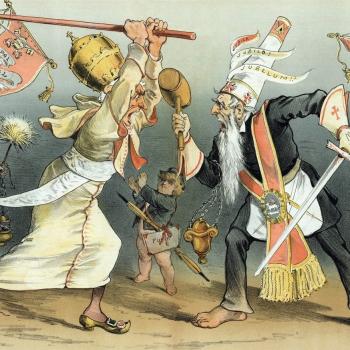In Broken Families, Broken Words, I quoted C. S. Lewis’s insight into what happens when words are eliminated. If you dislike a reality, you should try to make it hard to talk about. The quote’s one I used in an essay exploring these questions, To See Truly Through a Glass Darkly, subtitled “C. S. Lewis, George Orwell, & the Corruption of Language.” It begins:
Even well-educated people are often startlingly insensitive to language. One reads, even in the better magazines, prose that clanks and clangs, in which words have meanings only in the sense that “Bob lives in Manhattan” is an address, in which all sorts of assumptions the writers may not knowingly hold are conveyed in the words they use without thinking. The words plant themselves in our common vocabulary and grow there quietly till no one realizes what they actually mean, nor how they change minds and actions by making some thoughts more thinkable and others less.
Such a word is “values.” Cultural conservatives defend “traditional values” and “family values,” thinking they are speaking the language of the past, but in that word “values” lies a revolution in our understanding of goodness, for our ancestors would not have spoken of values but of virtues. The word “values,” the historian Gertrude Himmelfarb noted, includes
the assumptions that all moral ideas are subjective and relative, that they are mere customs and conventions, that they have a purely instrumental, utilitarian purpose, and that they are peculiar to specific individuals and societies. . . . One cannot say of virtues, as one can of values, that anyone’s virtues are as good as anyone else’s, or that everyone has a right to his own virtues.
A world concerned with values is a very different world from one concerned with virtues. It will be, at the least, a less virtuous world because it will think far less about virtue.
C. S. Lewis saw a similar effect in the change from “ruler” to “leader” as the popular name for those in authority or power. We ask of rulers “justice, incorruption, diligence, perhaps clemency,” but of leaders “dash, initiative, and (I suppose) what people call ‘magnetism’ or ‘personality’.” We see this today in the change in the common vocabulary from “piety,” which requires submission to God, to “spirituality,” which does not, and from “a book” that has a meaning, to “a text” in which the reader may find almost anything he wants, and from “conversion,” which assumes the truth is known, to “conversation,” which assumes that it is yet to be found.















